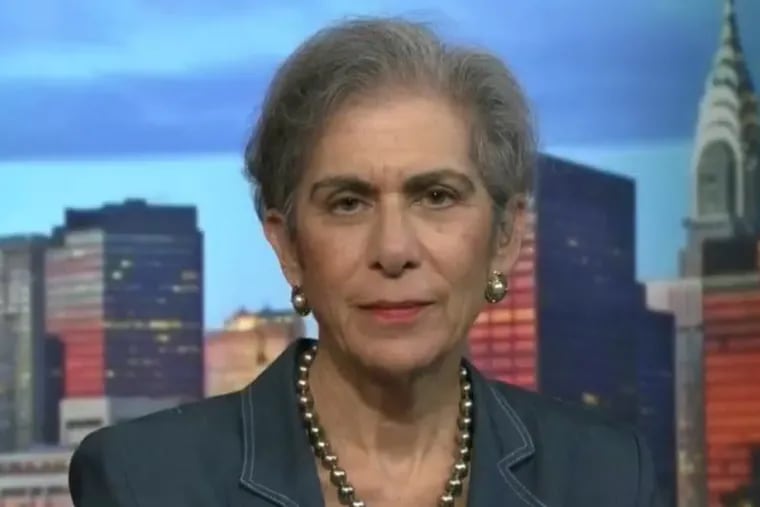- 24 Posts
- 1.12K Comments

 27·8 hours ago
27·8 hours agoMy point was that he is exactly against the system and playing it by voting for a major party.
That’s not true.
His whole speech was literally about utilizing your status as a voter in key swing states to demand change from candidates by threatening your power as a voter to choose
That’s a wildly inaccurate interpretation

 111·9 hours ago
111·9 hours agoThe big shift from Truman to Trump has been the number of domestic residents benefiting from our fascist policies. That number is shrinking year after year.
Half a century ago, you could talk to a rising tide carrying all our ships. Did that tide come from blood spilled in Africa, the Middle East, and the Pacific Rim? Sure. But that wasn’t our problem.
Now we’re seeing the kind of brutal police tactics reserved for Vietnam and Iraq show up in Florida and on the Columbia University campus. We’ve got paramilitary goons targeting Haitians in Ohio, rather than in Haiti. We’re increasingly reliant on prison labor to do the work of historical migrant labor. Our agitation against China isn’t generating jobs in the MIC nearly as fast as it’s killing jobs in the civilian sector.
If you’re part of the privileged group fascism is selling you safety, normalcy, and tradition.
A big goal of the AI Revolution is to shrink the number of people the Executive tier have to pay in order to keep their positions. And even executive positions are consolidating as businesses merge and buy one another out.
It’s terrifying everyone, and Trump is just the guy who figured out how to sell traditional Republican voters a way out. Traditional Republican leaders only know how to preach austerity and justify poverty.

 68·10 hours ago
68·10 hours agotrolls, bots, and people that just turned 14
-
Jill Stein voters are throwing their votes away.
-
Jill Stein voters don’t exist.
Which is it?
-

 412·10 hours ago
412·10 hours agoNo one’s voting 3rd party because they think they’ll win, they’re just throwing away a vote for Harris.
Would you prefer people voting 3rd party not vote at all?
If Malcolm X were alive
Why Malcolm X’s Family Is Suing the FBI, NYPD, and CIA 58 Years After His Death
Do you seriously think X was pro-FBI? Why on earth would he support a candidate who was?

 221·16 hours ago
221·16 hours agoLike so much Trump says and does, it’s Republicans demanding a state of affairs that already exists, but that we’re socially ashamed of.
Ask the guy in the NYC subway who caught a bullet for being adjacent to a turnstile jumper if we have violent policing. Ask George Floyd. Ask Sandra Bland. Ask Rodney King.
It already exists. We already functionally endorse it. We already put these acts is brutality on the front page.
We just don’t feel good when we see it. That’s what Trump wants to change. He wants us to view domestic police brutality like Israelis treat genocide in Gaza and Lebanon. He wants us to clap.

 3·17 hours ago
3·17 hours agothe party standing for freedom
That died with the Hayes Administration.

 7·1 day ago
7·1 day agoit is just becoming possible to have an infinitely persistent entity
You’re just describing a library. And we’ve had those for millennia.
That said… we’ve had libraries for millennia! Imagine all the alternative universes in which Euclid’s Elements or Plato’s Republic or The Analects of Confucius or Naturalis Historia or On the Revolutions of the Heavenly Spheres were lost before they could become cornerstones of human understanding.
Imagine a world in which we never developed the capacity for language or the faculty for written text.

 2·1 day ago
2·1 day agoAnd yet, despite stockpiling weapons for the next eight decades, never again.
Maybe that’ll change in the next decade, but hopefully we can keep 1945 as the last year nuclear weapons were used for a bit longer.

 28·1 day ago
28·1 day agoThey killed Lincoln but they couldn’t kill the abolitionist movement. Congress ratified three of the most progressive laws written in a century and the Freedman’s Bureau took to the job of enfranchising and rehabilitating millions of black ex-slaves in the subsequent decade.
Pick up a copy of W.E.B DuBois’s “The Souls of Black Folk”. What he describes is, at it’s heart, a revolution in how our country treated men and women of African descent. It set the foundation for the next century of civil rights and paved the way for a modern era in which the core racist underpinning of the country are totally upended.
That kind of fundamental change would not have been possible under a Breckinridge administration, nor would it have been possible if the Union had been crippled into submission at Gettysburg or Antitem.
Lincoln was the tip of the abolitionist spear and critical to what came after. But he was not alone. And he was by no means the most radical voice within his party. His martyrdom became the bloody shirt that Republicans rallied under long after the war had ended.

 12·3 days ago
12·3 days agoimplementing concrete solutions
So Dems need to… build the wall?

 62·3 days ago
62·3 days agoIt’ll be the cutest bloodbath we’ve ever seen
When you wrestle the pig, you both get muddy but only the pig likes it.

 213·3 days ago
213·3 days agoWe Report, You Decide

 11·3 days ago
11·3 days agoAnyone have a look behind the paywall?

 31·3 days ago
31·3 days agoTrump was happy enough to sell Ukraine a ton of weapons back in 2018, when Grimmer Bolton was whispering in his ear about playing both sides against the middle.
So much of this anti-war Trumpism is deeply cynical. He says this shit because the war is unpopular, but as soon as he’s in the driver’s seat he’s going right back to the Nixon in Vietnam and Obama/Trump in Afghanistan strategy of dragging that shit out forever so he doesn’t have to admit he lost.
People wax poetic about Trump being bad for Gaza. But this guy would be a nightmare for Europe more than anything. He’s erratic, untrustworthy, and easily swayed.
I think Harris is shit on foreign policy, but I have no illusions about Trump immediately kicking off more conflicts internationally because one of his Beautiful Generals told him it would look cool to drop another fuel bomb or three.

 21·4 days ago
21·4 days agoAny move away from FPTP harms them, so they aren’t going to support it
Sure. But if you don’t vote for the Democrats then you are implicitly supporting fascism and that will mean an end to all forms of democracy (or so I’ve been told).

 62·4 days ago
62·4 days agoLol … when has the will of the common people ever mattered to politicians who are beholden to the ultra wealthy.
The French Revolution leaps to mind.

 93·4 days ago
93·4 days agoThis is the only issue worth campaigning on.
You’re not going to like the people campaigning on it, though.
Spoilers: It’s the Spoiler Candidates

 152·4 days ago
152·4 days agoAmerica Is Living James Madison’s Nightmare
Madison and Hamilton believed that Athenian citizens had been swayed by crude and ambitious politicians who had played on their emotions. The demagogue Cleon was said to have seduced the assembly into being more hawkish toward Athens’s opponents in the Peloponnesian War, and even the reformer Solon canceled debts and debased the currency. In Madison’s view, history seemed to be repeating itself in America. After the Revolutionary War, he had observed in Massachusetts “a rage for paper money, for abolition of debts, for an equal division of property.” That populist rage had led to Shays’s Rebellion, which pitted a band of debtors against their creditors.
Madison referred to impetuous mobs as factions, which he defined in “Federalist No. 10” as a group “united and actuated by some common impulse of passion, or of interest, adversed to the rights of other citizens, or to the permanent and aggregate interests of the community.” Factions arise, he believed, when public opinion forms and spreads quickly. But they can dissolve if the public is given time and space to consider long-term interests rather than short-term gratification.
To prevent factions from distorting public policy and threatening liberty, Madison resolved to exclude the people from a direct role in government. “A pure democracy, by which I mean a society consisting of a small number of citizens, who assemble and administer the government in person, can admit of no cure for the mischiefs of faction,” Madison wrote in “Federalist No. 10.” The Framers designed the American constitutional system not as a direct democracy but as a representative republic, where enlightened delegates of the people would serve the public good. They also built into the Constitution a series of cooling mechanisms intended to inhibit the formulation of passionate factions, to ensure that reasonable majorities would prevail.
The people would directly elect the members of the House of Representatives, but the popular passions of the House would cool in the “Senatorial saucer,” as George Washington purportedly called it: The Senate would comprise natural aristocrats chosen by state legislators rather than elected by the people. And rather than directly electing the chief executive, the people would vote for wise electors—that is, propertied white men—who would ultimately choose a president of the highest character and most discerning judgment. The separation of powers, meanwhile, would prevent any one branch of government from acquiring too much authority. The further division of power between the federal and state governments would ensure that none of the three branches of government could claim that it alone represented the people.
unisex bathrooms are superior and solve all these issues
Unisex bathrooms tend to be single-occupant, which is less desirable in high traffic areas. Imagine a baseball stadium or movie theater without the rows of stalls or piss-troughs.





That’s very different from
He was arguing to abstain from voting without a quality candidates on the ballot. Not to court mediocre candidates by promising them your vote.